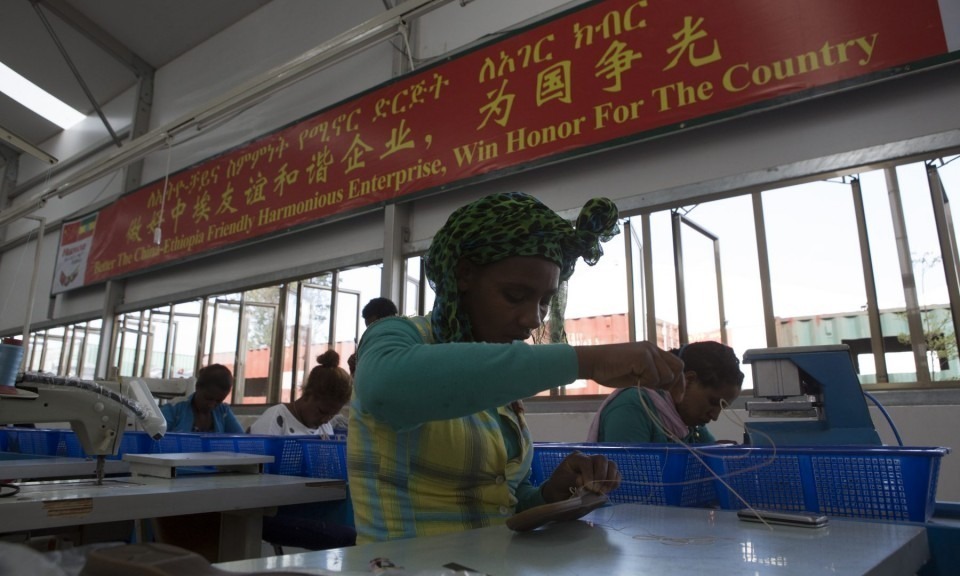McKinsey report data on Africa challenged by China-Africa experts
Where China’s engagement with Africa is concerned, there’s a persistent view among Western analysts that numbers tell the story. But what if the numbers don’t?
Global consulting firm McKinsey & Co. published a report in June 2017 called ‘Dance of the Lions and Dragons.’ The analysis was billed as the “closest look yet at Chinese economic engagement in Africa” and asserts that “there are more than 10,000 Chinese-owned firms operating in Africa today.”
Thierry Pairault, a China-Africa expert, says there might be that many Chinese firms on the continent. But he writes in a recent critique of McKinsey’s report that it offers no precise definition of what a Chinese enterprise in Africa is, except to say that it’s “Chinese-owned,” implying that it’s owned by a Chinese citizen or legal entity.
“I doubt that statistical services regard an enterprise as ‘Chinese’ solely on that ground,” Pairault writes in an article posted on the China Africa Research Initiative Blog, which is published by the Johns Hopkins School of Advanced International Studies (SAIS) in Washington. Pairault is a research director at the Centre National de la Recherche Scientifique, France’s largest government research center.
What is a ‘Chinese’ business?
Where the number of Chinese businesses in Africa is concerned, Pairault notes in his critique of McKinsey’s report that distinctions must be made across several categories.
The analyst says McKinsey didn’t specify whether businesses count which are owned by someone with a Chinese face but holding a local passport. Neither is it explained whether the companies are registered locally in Africa and owned by a Chinese national or if they are local units of companies based in China. Nor, Pairault adds, has McKinsey said in what circumstances an entity would be labeled as “African” rather than “Chinese.”
The overwhelming majority of these enterprises, he says, are small and micro businesses that are locally incorporated. From a legal and statistical standpoint, this makes them local enterprises even if they are Chinese owned.
“Most often, these businesses are registered by Chinese migrants who invested the savings they earned locally as employees,” Pairault writes. “Not only is the capital built up small, but also it is not, strictly speaking, Chinese FDI (Foreign Direct Investment), as it does not result from any financial flow from China to some African country.”
Real-life example
Pairault gives the example of a small Chinese firm run by Qin Jianjun, a Chinese national. Qin is said to have created two companies, both incorporated in Algeria, from scratch. The first was in the construction industry, in 2006, the second in 2014, in real estate development.
In a personal move to boost a business that employs about 1,500 local people on its construction sites, Pairault says Qin decided to “sinicize” both enterprises to make them look “more Chinese.” This involved making them subsidiaries of a company incorporated in China in 2015. Pairault explains this is how an “Algerian” company that had local roots became “Chinese.”
At the opposite extreme, Pairault notes there are African subsidiaries of large companies that are incorporated in China. These are the ones that McKinsey’s researchers should be concerned with, he argues. “Strictly speaking, these overseas subsidiaries (of actual Chinese companies) are the only entities that deserve to be designated as ‘Chinese enterprises.'” By this, he means an overseas business unit that is legally controlled by a group incorporated in China.
He further notes that many ‘Chinese’ companies are often created to last for the life of a development project. Some have ties to China’s government. But some cease to legally exist once the work is finished, according to the analyst.
With respect to McKinsey’s conclusion that there are 10,000 Chinese-owned firms operating in Africa, he says such a statistic at best attests to a Chinese “economic presence.” But it fails to differentiate if they’re investors, contractors, small business people, or others. “Such bias can only be prejudicial to the implementation of any strategy, cooperation or opposition” to China’s engagement in Africa, Pairault says.
At the same time, Pairault doesn’t assign any sinister motives to McKinsey’s report. It’s part of the consultant’s efforts sell its services.
“To Africans, they say, many Chinese invest a lot in Africa, if you don’t know how to get them to your country, we can help you. To the Chinese, they say, many Chinese companies have found an El Dorado in Africa. If you want, we can help you,” Pairault told in an email interview.




